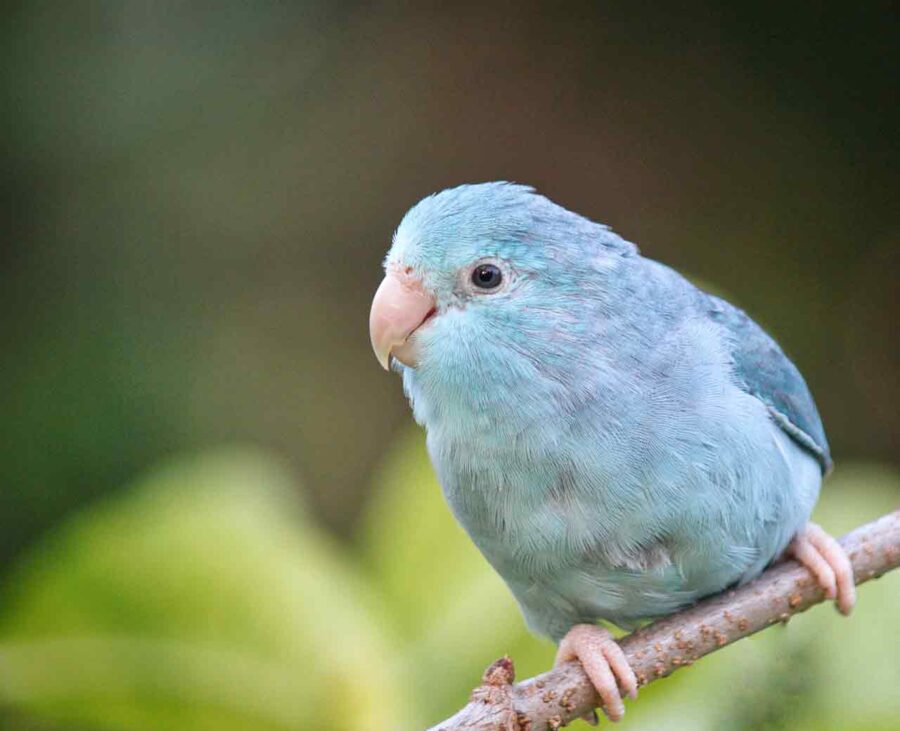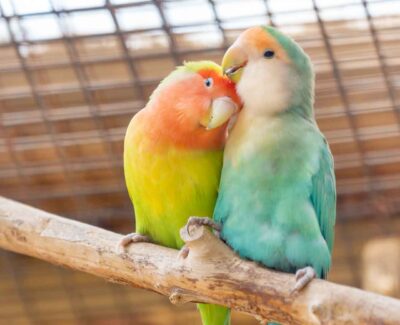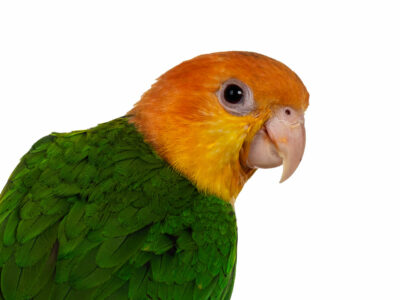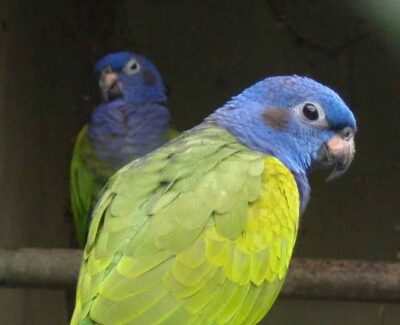
Parrotlet Care Guide: Tiny Parrots with Big Personalities
If you think “small” means “quiet and low-maintenance,” parrotlets will quickly prove you wrong! These tiny parrots may be pocket-sized, but they’re packed with confidence, curiosity, and charm. Intelligent and full of attitude, parrotlets are ideal companions for bird lovers who want all the personality of a larger parrot in a compact package.
Here’s what every potential parrotlet owner should know about caring for these spirited little birds.
Quick Facts About Parrotlets
Common Names
- Pacific Parrotlet
- Green-Rumped Parrotlet
- Spectacled Parrotlet (Pacifics are the most popular pets)
Scientific Name
Forpus coelestis (Pacific Parrotlet)
Size
4–5 inches
Lifespan
15–20 years with proper care
Personality
- Bold
- Intelligent
- Affectionate
- Feisty
Noise Level
Moderate — chirpy, but not loud or screechy
Vocal Ability
Some can learn a few words or sounds
Personality and Behavior
Parrotlets have huge personalities for their size. They’re playful, curious, and often fearless. When hand-raised and well-socialized, parrotlets form strong bonds with their humans. They enjoy spending time on your shoulder, exploring their environment, and engaging in games and training. But they can also be territorial and assertive, especially around other birds. Therefore, parrotlets are best kept alone or in pairs that were raised together. Unsupervised interactions with other birds may lead to aggression.
Housing and Environment
Even though parrotlets are small, they need plenty of space to move, climb, and play. Here are some guidelines to keep in mind when setting up their habitat:
Minimum cage size
18″ x 18″ x 24″ (larger is always better)
Bar spacing
½” or less
Cage setup
Include multiple perches of different diameters and textures, a variety of chewable toys, and foraging opportunities.
Location
Place the cage in a busy area where your bird can interact with the family — but away from drafts, kitchens, and direct sunlight.
Allow at least 2–3 hours of supervised out-of-cage time daily for exercise and mental stimulation.
Diet and Nutrition
Like other birds, parrotlets need a balanced diet to maintain their energy and feather condition. This includes:
Base diet
High-quality pellets formulated for small parrots.
Fresh foods
Offer vegetables (like leafy greens, carrots, and bell peppers) daily, along with small portions of fruit a few times per week.
Seeds
Can be given as an occasional treat or training reward, but should not make up the bulk of the diet.
Avoid: Avocado, chocolate, caffeine, alcohol, onion, and salty or sugary foods, as these are toxic to birds.
Always provide fresh water daily, and clean food and water dishes regularly.
Enrichment and Training
These little parrots are bright and busy — they thrive on variety and interaction. Here are some key elements for keeping them engaged:
Toys
Rotate frequently to prevent boredom; include foraging, shredding, and climbing toys.
Training
Parrotlets respond well to positive reinforcement. Teach simple tricks like “step up” and “wave.”
Social time
Spend time talking to and playing with your bird every day to maintain your bond.
Without enough attention or enrichment, parrotlets can become nippy or territorial.
Health and Wellness
With proper care, parrotlets can live long, healthy lives — but they are good at hiding illness. Schedule regular checkups with an avian veterinarian and watch for signs such as:
- Fluffed feathers or lethargy
- Changes in appetite or droppings
- Tail bobbing or breathing issues
- Overgrown beak or nails
Keep the cage clean, provide natural light or a full-spectrum lamp, and ensure that your bird gets adequate sleep (10–12 hours of darkness each night).
Is a Parrotlet Right for You?
Parrotlets make wonderful companions for people who want a highly interactive, intelligent bird but don’t have space for a larger parrot. They do best with owners who can spend time with them daily and provide plenty of enrichment and training.
If you’re ready for a feisty, affectionate feathered friend with tons of personality, a parrotlet might be the perfect match — but every bird (and person!) is different. Take our Bird Matchmaker Quiz to see which type of bird may be the right fit for your lifestyle!





